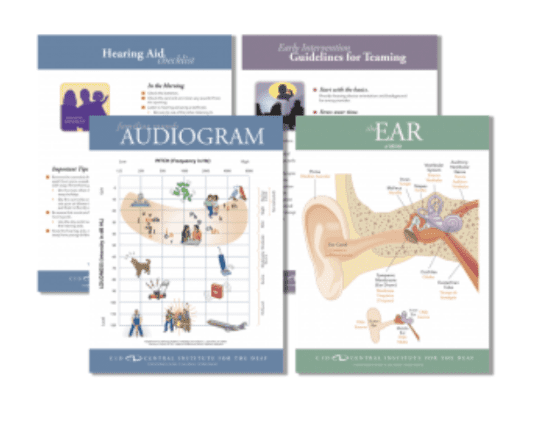After the uncertainty of the past year and the ways it forced us to stretch, bend and innovate, you may find yourself daydreaming about a sunny and warm vacation. While the thought of taking your child with hearing loss and her devices to a beach, river, lake or water park may feel daunting, with the appropriate preparation and expectations, this vacation could be just what the doctor ordered for a family reset. Consider the tips below for steps you can take before and during your vacation to make your trip a smooth one.
Before
- Plan ahead! Before leaving, locate all the equipment you think you will need. This may include extra batteries, back-up processors or devices and waterproofing accessories, if you have them. Missing something? Need pieces replaced? Reach out to your audiologist with enough lead time to obtain all the equipment needed.
- Bring back-up devices. If your child has back-up devices, consider keeping one set with your waterproofing accessories and one set stored separately. This will make for easy switching when in the car or out to eat. Make sure the back-up devices are up to date.
- Pack batteries. Pack the amount you think you will need, and then pack a little bit more! Bring spare batteries for devices requiring disposables, and make sure you have your charger for any rechargeable device needs. Identify which types of batteries are compatible with your waterproof accessories. Most disposable batteries are air-activated, and waterproof accessories work by keeping air and water out of your device, thereby rendering an air-activated battery ineffective. Check your manual (or ask your audiologist) to determine which battery type is needed for use with your waterproof accessory.
- Familiarize yourself with your device’s Ingress Protection (IP) rating. The numbers that follow the IP rating classify the level of protection against things like dirt, dust and water. Your manual should contain information related to the device’s rating, like how deeply and for what period of time a device can be submerged in water without compromising it. Your audiologist is a good resource for this as well.
During
- Keep devices on and secured while enjoying time around the water. Reduce the stress of losing a device by securing the device(s) to clothing like your child’s swimsuit or swim shirt using a safety line. This ensures that if the device falls off the ear/head it remains attached to the article of clothing. To learn more about specific retention options, contact your audiologist.
- Look into wearing options that best suit your needs – no pun intended! There are several water-safe headband options or special swim shirts that can accommodate hearing devices. Ask your audiologist for more information!
- Use sunscreen. This is an absolute during the summer, but consider these tips for application:
- If using a lotion-style sunscreen, wash your hands after application before handling devices to avoid build-up.
- For spray sunscreen, aim away from devices or apply first to avoid covering the device microphones in a layer of sun protection.
- Bring along a protective case to store devices when not in use. An air-tight, hard-shell case to keep moisture and sand out is ideal. Don’t have a waterproof case? Throw the protective case you have inside a zippered plastic bag for an extra layer of protection. Consider adding basic contact information should the case get lost.
- Listening around water presents inherent listening challenges – namely distance, wind and background noise. Remember to keep your “listening bubble” small to help your child hear best amidst these outdoor elements.
- Moisture and sand can affect the performance of devices. Keep your travel dehumidifier handy when your child is not wearing the devices. Also, keep an eye out for any devices getting buried in the sand!
Trips to the beach, lake, river or water park are for relaxing, unwinding and making memories; however, the very things we love about the water –the sound of the waves, the splashing and the sand– are the same things that can make listening a challenge. By planning ahead and having appropriate expectations, these challenges can be minimized, and your vacation can be stress-free and fun for all!
People photo created by tirachardz – www.freepik.com

Brittany Wuebbles is the Director of Pediatric Audiologist in the Martha E. Jones Pediatric Audiology Center at CID – Central Institute for the Deaf. She joined the CID Audiology staff in May 2016 after graduating with her doctoral degree from Washington University School of Medicine in St. Louis. Ms. Wuebbles currently serves children ages birth through 13. Her clinical interests include cochlear implants, amplification and optimizing performance outcomes.












